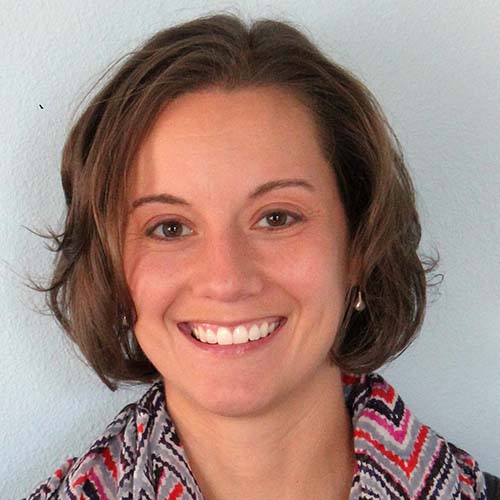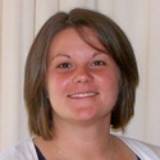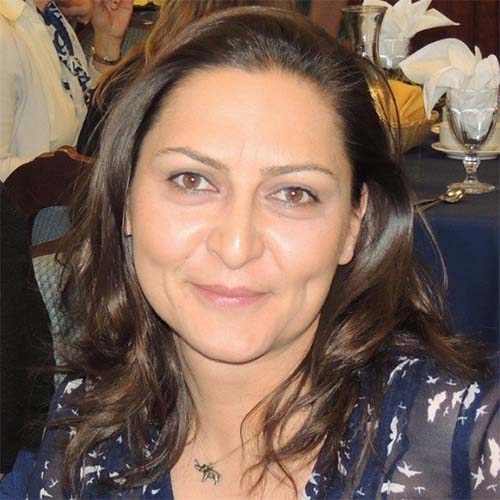Exceptional Preparation, Diverse Opportunities
In today’s data-driven world, mathematical fluency is essential in almost every industry. Tailor your studies to match your academic and career interests with UNC’s versatile math bachelor’s degree program. A math degree with a focus on secondary teaching, applied mathematics or liberal arts can propel you toward graduate school or employment in education, business, statistics, computer science and many other fields.
No matter which focus you choose, you’ll benefit from UNC’s small classes and highly engaged instructors. Our math bachelor’s degree program offers extraordinary access to Ph.D. faculty, providing you with unusually broad opportunities for academic guidance, professional mentoring and research participation. You’ll graduate with exceptional preparation for the job market, and if you’re seeking employment as a secondary math teacher, you’ll benefit from UNC’s highly regarded, innovative teacher education programs.
Degree Options
B.S. in Mathematics
Mathematics and related areas have been important human endeavors since ancient times. Mathematics is a discipline with its own questions, methods, and content and a tool to explain the natural world. Mathematics, statistics, and computer science have become essential to almost every other discipline such as the natural sciences, the social sciences, business, and economics.
B.S. in Computer Science
The B.S. in Computer Science focuses on the design of computers, computational processes for problem-solving, and information transfer and transformation, with an emphasis on improving software and system quality, security, performance, and usability. The program supports the evolution of the computing and informatics disciplines, and the integration of computer and information sciences with other disciplines in the sciences.
Computer Science professionals design, analyze and improve the quality of computer software and systems for a variety of applications, including artificial intelligence, computer vision, cybersecurity, graphics, information management, multimedia, networking, and human-computer interaction.
B.S. in Statistics
The BS Statistics Major provides students with instruction in the basic techniques, applications, and theories of statistics, including the design and analysis of statistical models, in a wide variety of settings such as biology, business, criminal justice, earth sciences, geography, medicine, law, psychology and other social, natural and health sciences. Expanded computational, scientific, and statistical knowledge, combined with growing needs in technology, have created increased demands for individuals trained in statistics. Graduates are prepared for positions involving the design and analysis of statistical models in such areas as environmental, governmental, industrial, military, and social settings, and for additional graduate study in the areas of applied statistics and operations research.
Concentrations for a B.S. in Mathematics
Secondary Teaching Concentration (Licensure Grades 7-12)
Few mathematics bachelor’s degree programs can match UNC’s dual focus on high-level mathematics content and advanced teacher training. You’ll get the rare benefit of earning your teaching certification while working with Ph.D. math faculty in a math department, rather than an education department. This concentration includes a one-semester student-teaching placement, plus coursework in teaching, curriculum and pedagogy. Close to 100 percent of recent graduates from our Secondary Teaching concentration have found jobs as math teachers within a year of graduation.
Middle School Teaching Concentration (Licensure Grades 6-8)
UNC has one of the few middle school teaching certifications in the state. This program includes both high-level mathematics content as well as courses directly connected to the content you will teach. This concentration includes a one-semester student-teaching placement, plus coursework in teaching, curriculum and pedagogy. Close to 100 percent of recent graduates from our Middle School Teaching concentration have found jobs as math teachers within a year of graduation.
Expanded scientific, statistical and mathematical knowledge, combined with growing needs in technological as well as social areas, have created increased demands for individuals trained in applied mathematics, computer science, statistics and data science. We offer concentrations in each of these areas.
Pure and Applied Mathematical Sciences Concentration
This concentration focuses on applications of mathematics to real-life problems and includes some supporting computer science and statistics. Graduates are prepared for technical positions in such areas as environmental, governmental, industrial, military, and social settings and for additional graduate study in mathematics and other related disciplines.
The concentration also prepares graduates for graduate programs in mathematics, applied mathematics, statistics, and data science. Students will be prepared to begin a career in a variety of quantitative settings including branches of engineering, physical and social science, finance and management, law and medicine.
Computer Science Concentration
This concentration focuses on the design of computers, computational processes for problem-solving, and information transfer and transformation, with an emphasis on improving software and system quality, security, performance, and usability. S student will be prepared for careers with computer software companies, careers involving a significant use of computer technology, or for additional graduate study in computer science and other related disciplines.
Statistics and Data Science Concentration
This concentration focuses on statistical foundations and their applications to problems in varied disciplines, e.g. business, agriculture, medicine, law, literature, psychology and other social sciences, and on the design and analysis of statistical models in a wide variety of settings. Graduates are prepared for positions involving the design and analysis of statistical models in such areas as environmental, governmental, industrial, military, and social settings, and for additional graduate study in the areas of applied statistics and operations research.
Minor Options
Minor in Mathematics (Liberal Arts Concentration)
The basic math minor pairs well with majors in business, science and the social sciences; it adds skills that improve your competitiveness on the job market. You’ll enjoy broad flexibility to take courses in calculus, statistics, probability, differential equations and other advanced subjects.
Minor in Computer Science
Skills in computer programming, computational process for problem-solving, and software design are a great addition to any major and career preparation. this minor includes 18 credits for coursework in subjects such as programming, algorithms and data structures, software engineering and machine learning.
Minor in Applied Statistics
Statistical expertise can add career-boosting value to many majors. This minor includes 20 to 21 credits of coursework in subjects such as probability theory, linear regression, sampling techniques and calculus.
Minor in Mathematics (Secondary Teaching Concentration)
This minor does not lead to a teacher certification, but it combines well with education-related degrees to provide you with expertise in the important science, technology, engineering and mathematics (STEM) education category. Coursework covers linear algebra, calculus, geometry and discrete mathematics.
Your Future in Mathematics
Nearly every industry relies on higher math skills in some respect, so the math bachelor’s degree with an Applied Math emphasis or Liberal Arts emphasis opens up good career opportunities in health care, medicine, business, engineering, environmental research, manufacturing, computer technology and many other fields. With STEM education ranking among the nation’s most talked-about priorities, our Bachelor of Science in Math, Secondary Teacher Concentration, prepares you to step directly into a dynamic sector of the job market.
Consider UNC’s Mathematics programs if you are:
- Passionate about math
- Enjoy collaborative problem-solving
- Seeking a variety of career options
- Focused on a career in math teaching, engineering, computers, statistics or another math-related field
- Interested in connecting with other mathematicians
You’ll learn:
- Higher math concepts such as differential equations, numerical analysis and mathematical modeling
- Statistical concepts including linear regression and probability theory
- Computer science skills such as object-oriented programming and algorithm writing
- Classroom teaching and curriculum development (teacher emphasis area only)
Sample courses:
- Computer Programming
- Abstract Algebra
- Geometry
- Mathematical Modeling
Beyond the Classroom
UNC’s large, active math department offers many opportunities for extracurricular activity. The student-run Math Club meets weekly and sponsors lectures, movies, problem-solving contests and more. Each fall the Math Club sponsors the Gathering for Gardner Celebration of Mind. Students also regularly attend regional and national mathematics conferences.
Where can your degree take you?
- Secondary math teacher (Grades 7 through 12)
- Computer science
- Business and finance
- Engineering
- Graduate school in mathematics
Ready for what's next? Here's what you need to know.
If there's anything else we can do, be sure to connect with us. We're only a shout away.
Still not completely sold? We understand. Here's more information on cost and aid and how to apply.





